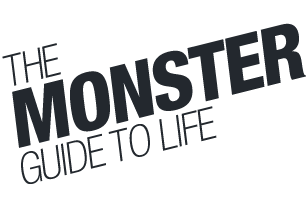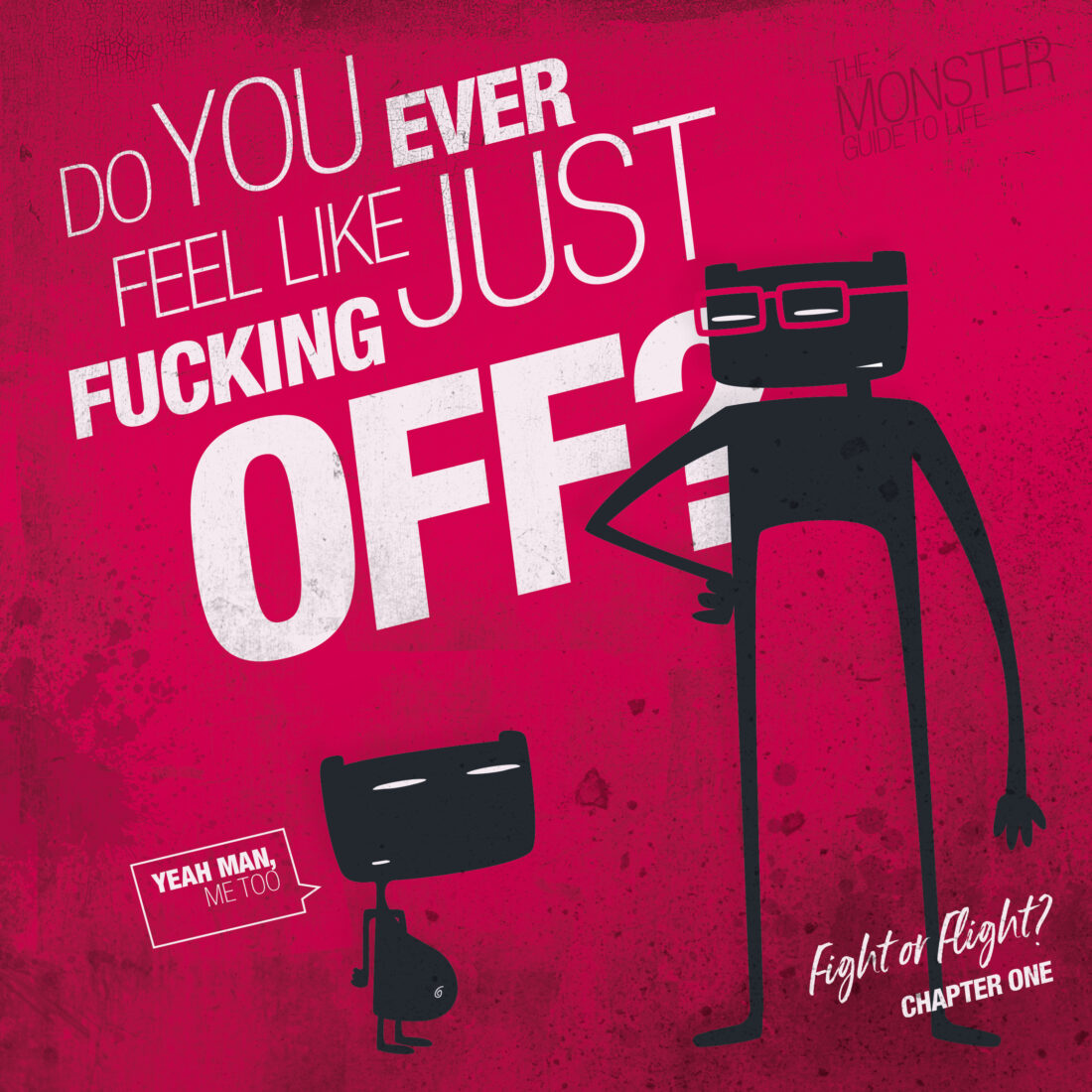Do You Ever Feel Like Just Fucking Off?
Fight or Flight? – Chapter One
Some things in life are just hard. There’s no avoiding it. We find ourselves in a situation where we’re suddenly struck by a lightening bolt of ‘what the actual fuck’ and swiftly enter the realm of fight, flight or freeze mode.
When inside we’re being faced with a life-altering dilemma, a choice that we didn’t ask for or didn’t see coming. Something’s happened, we’ve been ‘triggered’.
The trouble with this mode is that it can be difficult to determine the best course of action for ourselves and what’s actually affecting our own mind in this realm. That’s the crux of what’s happening and why we’re torn between diving in, running away or freezing solid (not knowing which to do – fight or flight). The present moment has triggered us for sure, whatever it was, it’s something painful – that’s half the reason why we’re here. But it’s not all about the present, our human nature, our instincts and past experience are playing their part too.
When we find ourselves facing this dilemma it’s a valid response triggered by something that’s happened to us – an external event. A traumatic community event or one closer to home like a personal betrayal. It’s a response that our survival instinct, something that’s there to protect us, is producing. So it’s a feeling that shouldn’t be ignored or avoided – for our own sake.
It’s easy to focus in on that, the event itself, which actually pulls the strings on our survival response even more. It’s demanding we act to save ourselves from whatever’s occurring outside of our control.
In the community event scenario our decision is often swift because it’s literally about saving our lives. When it’s closer to home however, where the threat isn’t to life itself, there’s more going on than the present moment, something related to our default, a deeper trauma response, something that isn’t actually relevant to the here and now.
This ‘thing’ that has triggered us and our all-powerful, all-knowing, self-preserving survival mode is only half the story. It can be a tricky business deciphering between the subsequent thoughts we have as a result, which makes survival mode a stressful place to be.
By that definition, that very feeling, the inner battle we experience is fight, flight or freeze mode in action. Unlike the life saving events, when it’s closer to home it’s essentially an emotional response (feeling hurt) and so can last longer, even repeating itself, drawing out the dilemma we face…because we have conflicting emotions involved too; love, self-respect, self-worth, compassion, empathy and our values…all coming along for the ride.
It can become a mind-bendingly awkward position to find ourselves in.
Our survival instinct is deeply subconscious, it’s ingrained in our DNA so there’s little we can do to change that part of us. It’s there for good reason, why would we want to? But the unconscious instincts from our own life experience is something we can understand and determine the affect of in order to better inform our decision making ability. Not just when we find ourselves considering fight or flight but within life in general. It pays to understand why we think and do the way that we do.
Most of that boils down to self-awareness – understanding ourselves, our value system and what we mean when we say what we say and what our intentions are when we do what we do. As well as understanding our past trauma and how it affects us.
Something I’ve learned about ‘fight, flight or freeze’ mode over the years is actually a strange thing, it almost feels counter-intuitive. The best response to it is actually to be completely and utterly present in the moment. Right here, right now. Take a neutral position where we can find more clarity and experience what’s actually happening, between us and the events around us, as well as between us and our subconscious mind.
This not only acts to help us decide what’s best for us but also creates space to have a greater empathy and understanding for what ‘might’ be going on behind the situation we’re in, and even in someone else, in their words or actions.
Let’s face it, our subconscious mind doesn’t always have our best interests at heart, so being aware of it and how it can influence us is important. By getting to know self and being present we’re more aware, more conscious, promoting trust in ourselves and the ability to make choices at the edge of our limits. Choices for and based on the here and now, not the past, not fear and not our trauma. Which is precisely where we face the three ‘F’s’.
It’s not as easy as it sounds - that doesn’t mean it can’t be done.
When we learn about our internals, we can better understand the externals around us too. With whatever it is that makes us feel weird, on edge, threatened or cautious of. We can see the event, our response to it, which parts of that are justified and which aren’t, and we can see the same within the event itself – what was behind it. Good intentions, bad intentions, a mistake, whether it was personal or not, whether it’s something we should or shouldn’t be genuinely afraid of or affected by.
All of which enables us to choose the most appropriate course of action without dragging out our experience of fight or flight mode.




No Comments